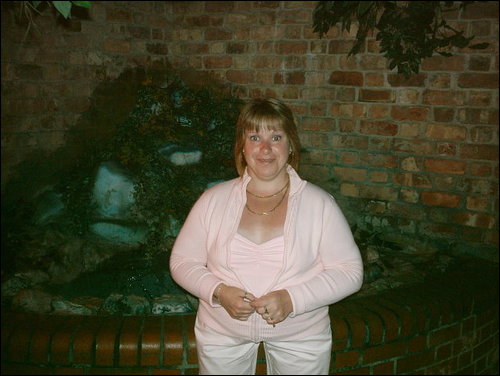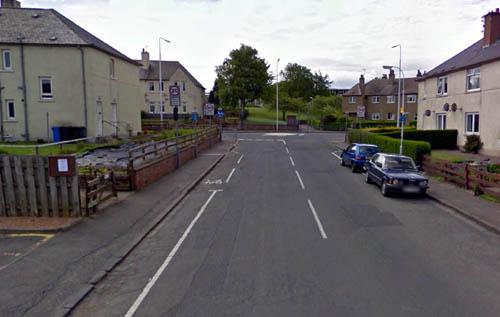A WOMAN with artificial legs has been refused a disabled parking space in the quiet street outside her home because it could inconvenience cyclists.
Anita Gatherum walks with crutches and has a specially-adapted car which is controlled using her hands alone.
But the 45-year-old has been told by Fife Council that she cannot have a disabled parking space because a cycle lane is already marked in the road.

The decision has infuriated and baffled Anita because the quiet residential street in St Andrews has relatively little traffic and some residents simply park on the cycle lane anyway.
Anita works at a local hotel in the town and lives with her partner Fraser Renfrew.
Despite doing her best to live a normal life, the lack of nearby parking is making her life a misery.
Fraser said: “They said they couldn’t remove the cycle lane to put in a disabled parking space. How is she supposed to get in with her shopping?”
“I work as a taxi driver and sometimes I have to come off the job to come home and help her in.”
Fife Council told Anita Gatherum and her partner that it was impossible to mark a disabled space on the road as a cycle lane-measuring only a few metres-has already been put in place.
A disabled space has been marked out further up the road but is still too far away for Anita to walk back to her home. The property she is in now is also several feet above ground level so there are still steps to climb before being able to enter her home.

Capability Scotland’s Richard Hamer warned this could become an increasing problem for disabled people as cycle lanes become more common.
He said: ”This situation highlights the barriers disabled people face when getting out and about.
”With cycle lanes becoming more commonplace in Scotland, this is an issue that could well affect more disabled householders across the country in the future.
”Capability Scotland is aware that many disabled people find public transport inaccessible and are, therefore, reliant on their cars for getting from A to B. It follows that they need to be able to park close to home.”
Colin Gilbert, Fife Council’s area housing and neighbourhood team leader for North East Fife, said: ”If the needs of our tenants change since accepting their tenancy agreement then we will, of course, review their situation and if required make any necessary adaptions to their home.
”If there have been significant changes to their circumstances then alternative housing may be necessary. This would require a new application to be made for accommodation.”

